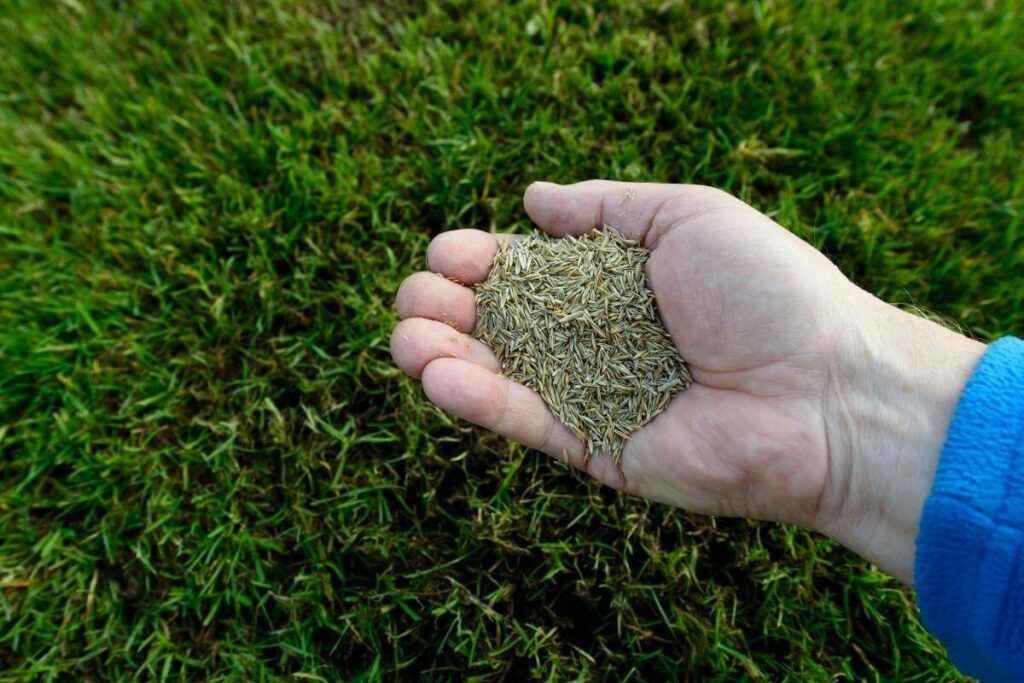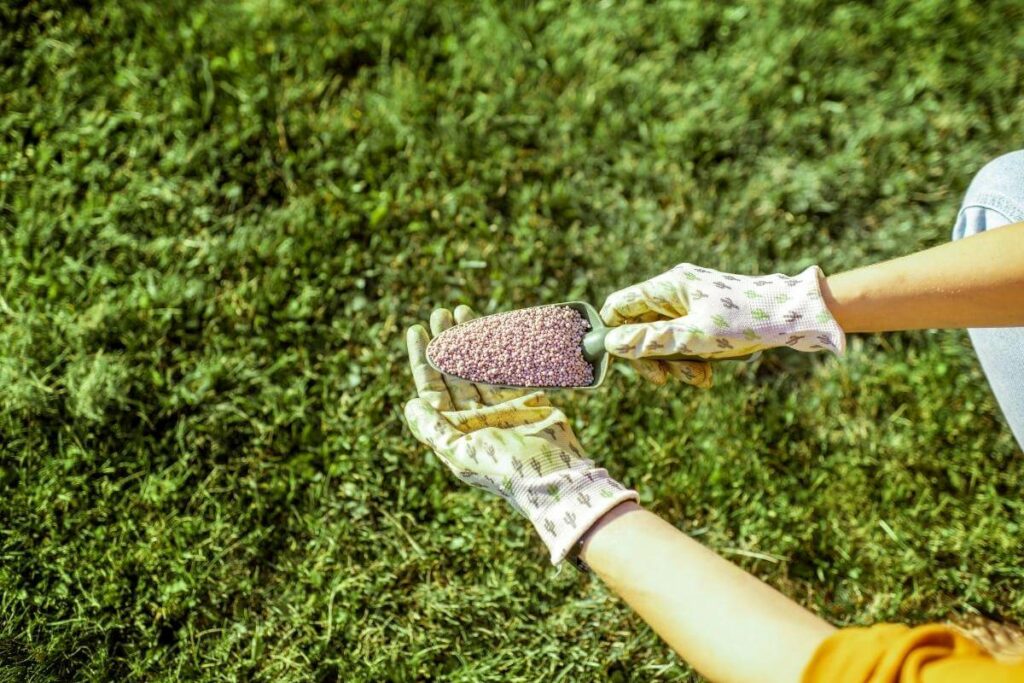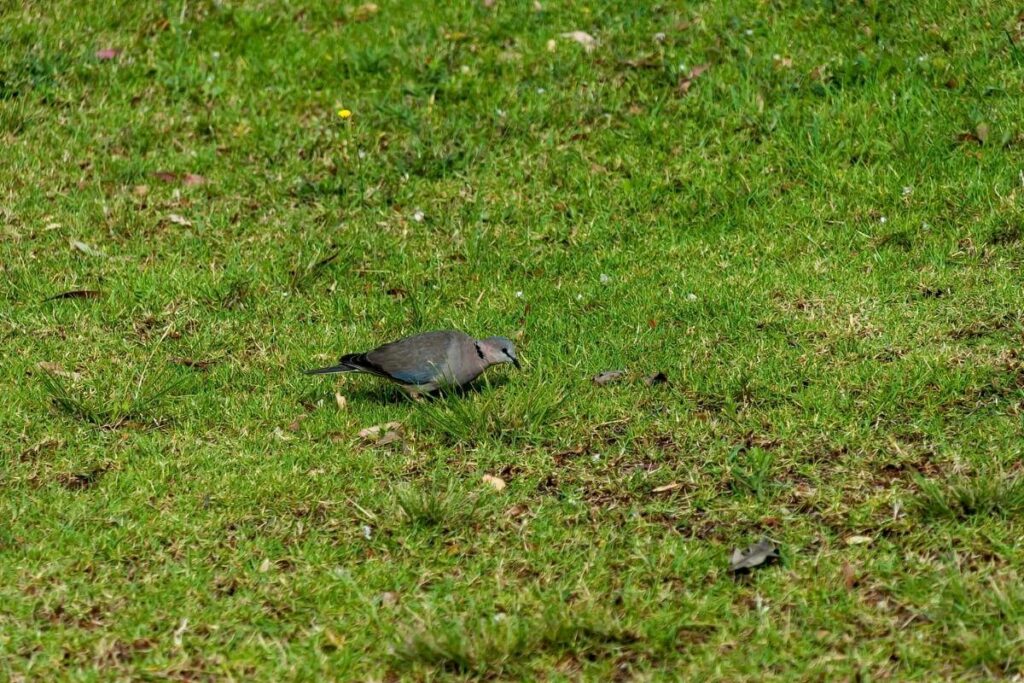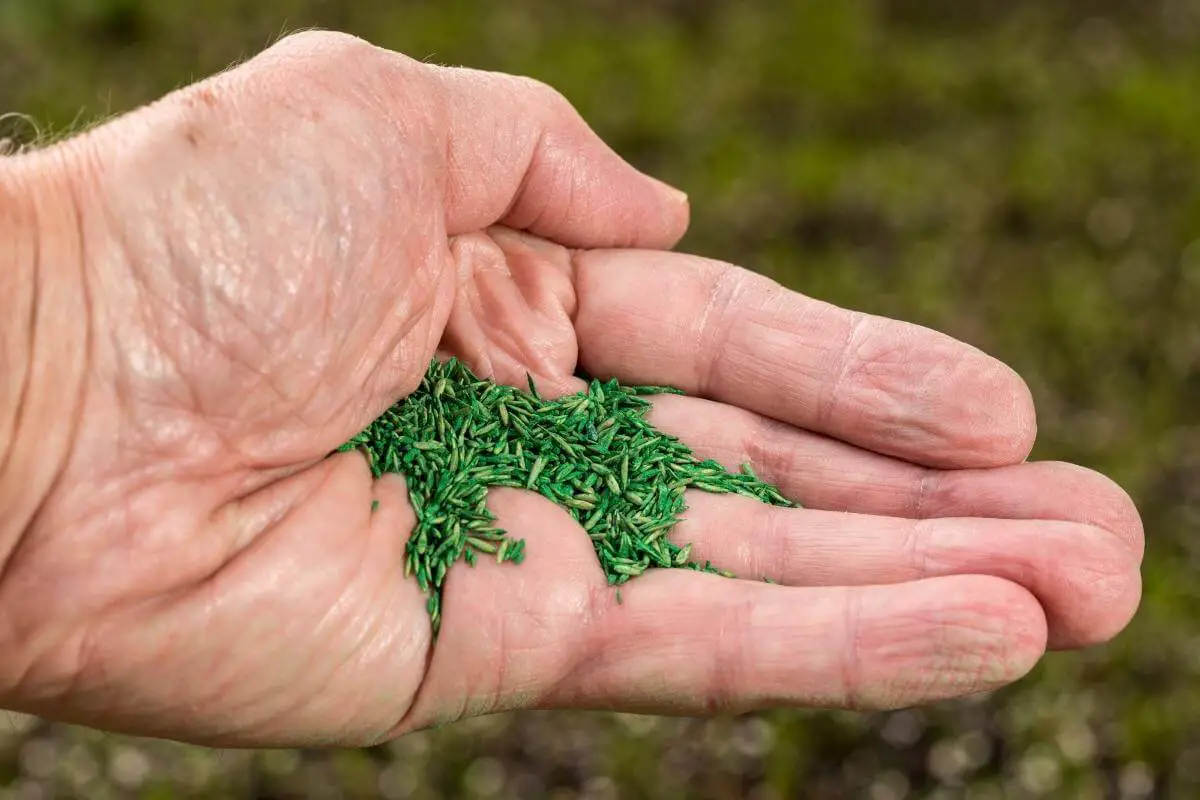When you’re looking for grass seeds, you may get overwhelmed with all the options.
Laying a new lawn can take a lot of time.
So, finding ways to save time is always helpful, and coated grass seeds are one of the ways you can do that.
Coated grass seeds have a special protective clay coating to help keep the seed moist during germination. It also helps the seed grow faster. After all, seeds not getting enough moisture and drying out is the number one reason new lawns fail. So, spending a bit more on coated grass seeds may be worth it to ensure a more healthy, hydrated lawn.
As for whether or not birds eat coated grass seeds, they might eat them before they germinate.
Seeds in this state are toxic to an extent.
Coated Grass Seeds vs. Uncoated Grass Seeds
Now that you’ve learned a bit more about coated seeds, let’s find out the differences between coated and uncoated grass seeds.

For one, coated grass seeds ensure easier and more uniform seeding.
Here’s why.
Coverage
Coated grass seeds are usually dyed either blue or green.
They are dyed in order to help you keep track of how many seeds you’ve laid.
Often, brands will add in a fertilizer, fungicide, or insecticide to further assist the seed in growing and staying protected.
The coating also improves the number of seeds that germinate and makes for more uniform coverage.
Due to the coating, coated grass seeds are most dense in both weight and size.
So, keep in mind when buying your grass seed bags that you aren’t getting all grass seed with those pounds, since the coating adds weight as well.
Therefore: This can increase how many bags you may need to purchase for your lawn, doubling or tripling the budget.
Germination
Compared to uncoated grass seeds, coated grass seeds are designed to help the germination process by keeping the seed moist.
This is a good choice if you don’t think you’ll be able to water your seeded lawn often or multiple times a day.
And because the coating adds density to the seed, this reduces the chances of wind drift. It also means it’s more likely to get the necessary seed to soil contact.
Moreover, coated seeds contain nutrients that supply the young seedling until its root system can tap into fertilizer or soil nutrients.
Fertilization
Clay coatings on grass seeds may include a fertilizer to encourage the growth of a new seed.

This helps save time and money so that you don’t need to add a new seeding fertilizer later on in the process.
Nevertheless, there isn’t enough fertilizer in each coated seed to last longer than a few days.
So, for a cost-effective option, you can spread uncoated seeds and a new seeding fertilizer that’ll give better results.
Remember This: You should make sure to use a fertilizer with high phosphorus levels, which is an essential nutrient in root formation and new seed growth.
Quality Control
When using coated seeds, there’s slight uncertainty about the quality.
Accordingly, you must remove both the dye and the coating to inspect the seeds for contaminants, such as weed seed, crop seed, and inert matter.
Uncoated grass seeds are more reliable, as you know the quality of grass seed that you’re getting. There’s no need to worry about fillers, dyes, or chemicals being used.
Also, uncoated seeds are much easier to test for contaminants.
Will Birds Eat Coated Grass Seeds?
You may wonder if birds will eat coated grass seeds and if they do, will it harm them?
Coated grass seeds have a faster germination rate; therefore, they’re available as a snack for birds for a small amount of time. And by the time they germinate, the birds will have lost interest in them.

The coated grass seed label should include this warning so that the consumer is aware of this.
Furthermore, ground-feeding birds love grass seeds because they’re easy to swallow.
Key Takeaway: They prefer seeds with thinner shells but will eat any kind if they’re hungry enough. Nevertheless, coated seeds have a bad taste, so birds usually stay away from them.
How to Stop Birds from Eating Your Grass Seeds
You worked so hard to spread your grass seeds, and you can imagine how beautiful and lush the results be.
Then, you turn around, and a flock of birds eats up half your grass seeds.
So, let’s see how you can prevent this from happening:
- Straw – It’s an excellent mulch because it still allows light and moisture into the seeds. Just rake the ground so that the seeds are deep, and lay straw over the top. This isn’t ideal for windy climates.
- Burlap – This covering method also allows light and moisture in. You can stake it down for ultimate protection.
- Mylar tape – This reflective tape will frighten birds away with its noise in the breeze. Attach it to posts six feet apart around the newly seeded spot.
- Noise – Just like the mylar tape, birds don’t like noise. So, hang wind chimes around the yard, and scare the birds away.
- Distraction – To keep them away from grass seeds, provide other seeds they’re welcome to eat. Then, place them far away so that they’re happy eating other seeds.
Final Thoughts
Finally, whether you’re seeding your whole lawn or just patching up dead spots, you should now feel more confident about which option to pick when it comes to coated or uncoated seeds for your project.
You should consider how much coverage you’ll need, the germination process, fertilizer, and quality control of the seed.
Also, if you have many birds in your area, you may want to think about how to keep them away from your newly seeded spot because they might eat them, and they can be toxic to birds.
Also Read
- Do Grass Seeds Die in the Cold?
- Why Is My Newly Sown Grass Turning Yellow?
- Is it Worth Paying for Lawn Care?
